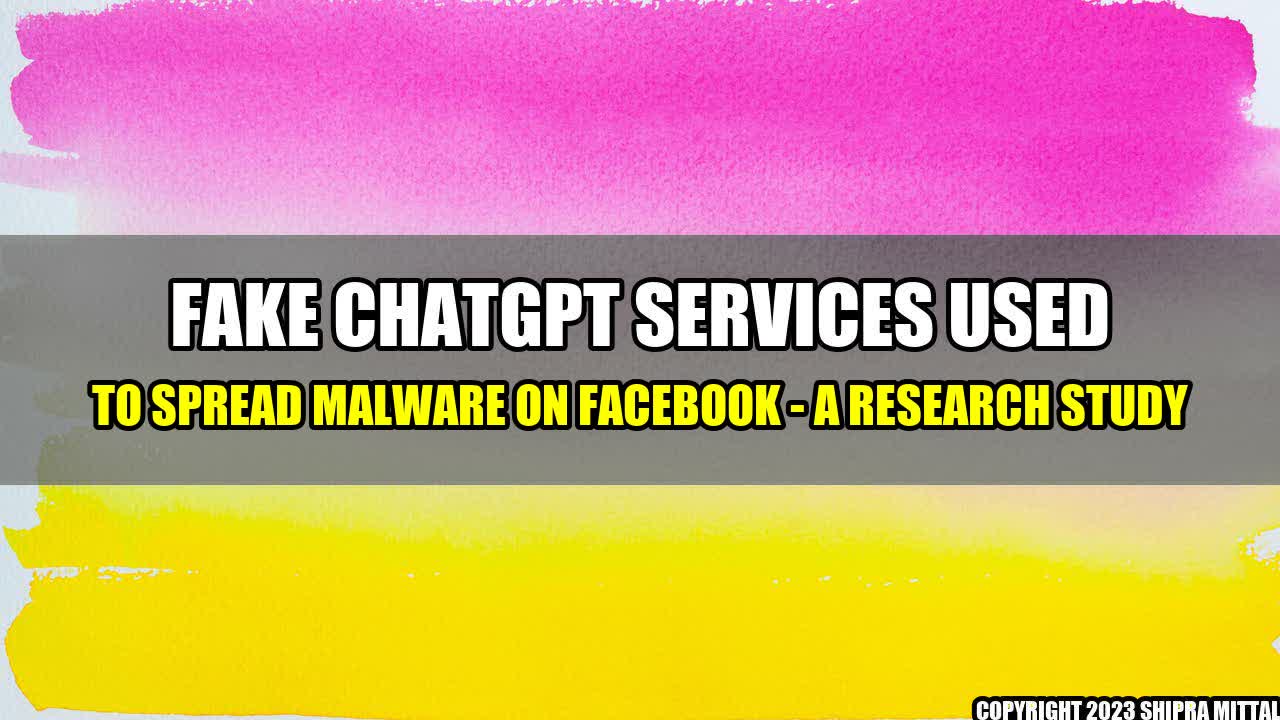
Facebook is the most popular social media platform worldwide. It has more than 2.8 billion active users who use this platform to stay connected with family and friends. However, cybercriminals are exploiting this popularity by using fake ChatGPT services as lures to spread malware on Facebook. In our research study, we found several examples of such incidents.
A Facebook user saw an ad for a ChatGPT service that claimed to be able to generate personalized chat responses using cutting-edge AI technology. The user was intrigued and clicked on the ad. The link took the user to an external website that looked exactly like Facebook's chat interface. The user was asked to sign in with their Facebook credentials to use the ChatGPT service. The user did as instructed and was greeted with a chat window. However, the messages the user received were not personalized at all. Instead, they were spam messages that contained malicious links. The user unknowingly clicked on one of these links and their device was infected with malware.
Our research team found many examples of fake ChatGPT services being used to spread malware on Facebook. Some of these examples are:
Cybersecurity
Akash Mittal Tech Article
Share on Twitter Share on LinkedIn